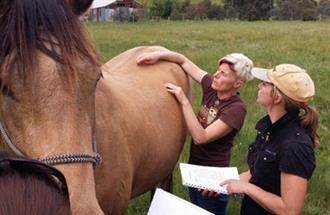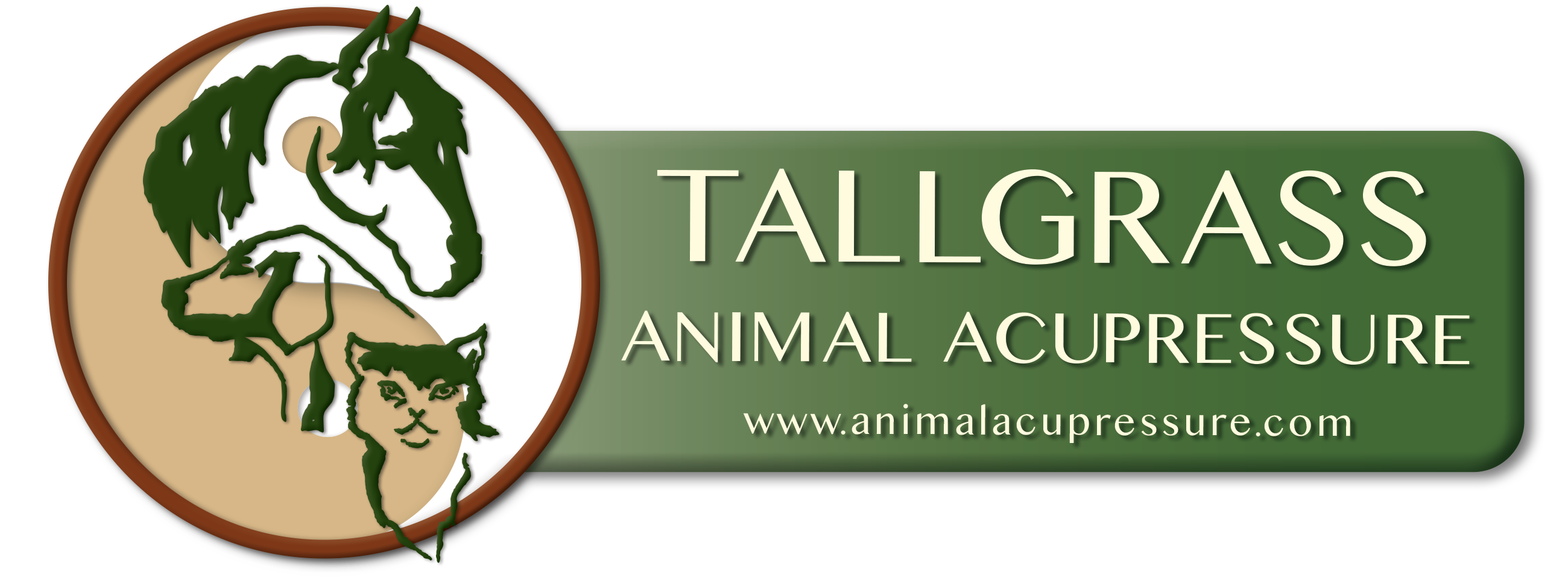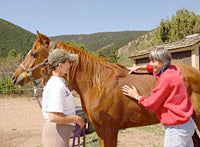By Amy Snow & Nancy Zidonis
Part 2 of a 3-part series
Communication is a two-way activity. However, as an animal acupressure practitioner your role is to gather information about your animal client and his guardian while being available, open and caring. In other words, your job is to LISTEN. And not just listening to respond, but listening to understand and ask good, open-ended questions to help the guardian tell you what is going on with his animal. This is called “active listening.”
Active listening means you listen with at least four ears – the two you were given at birth, another to tease-out the information you need as a practitioner, and the fourth for you to hear the emotional tenor – perceive the surrounding concerns. Stay away from jumping to conclusions, keep your mind open. Try not to over-react to anything the guardian says, stash it as part of your data collection about the animal and his guardian. This is not a time to make any judgments.
As practitioners, we want to “fix things.” We are tempted to problem-solve too early in the process of getting to know the clients (i.e., the animal and his companion human) or even later in the relationship. It can close-off the communication before you fully understand the relevant emotional and physical issues.

Listening with the fourth ear is usually the part we miss noting – we often feel it, but we don’t hear it. It is the way someone is talking. This includes tone of voice, eye contact, and body language. When the animal or guardian is anxious or aggressive, we don’t miss it, for sure. But when the animal and guardian seem “normal,” we have a tendency to overlook subtleties and nuances and those can be the most telling pieces of information you need to do a good job.
Be your most empathic and authentic self when working with clients. This is how people connect and develop relationships. Both animal and human will sense your sincerity. Maintain your focus on them. Before starting your assessment process explain what you are going to do. Because you need to focus on the animal, ask that the guardian watch the process or give him a job such as counting how many breaths the animal is taking per minute. That’s if you sense the guardian is anxious or will “disrupt” your concentration. Some practitioners hand the guardian the form related to the Inquiry portion of the assessment to keep them busy.
Strive for clarity in your communications with clients – the animals are more forgiving than their people in this regard. The animals are more connected to your empathic intent. Guardians want to trust that you are going to help their animals. Often their expectations around what we can do and how we go about helping their animal are quite a bit different from our reality. This is when your diplomatic and direct communication skills come into play.
After you have arrived at your acupressure plan and have performed the session. Talk directly with the guardian about this and what you see his animal’s needs are for long-term benefit. Describe the health issues as simply and clearly as possible. Be sure to explain your assessment and what you expect to achieve in subsequent sessions. Relate the frequency and number of sessions that would be most beneficial for the animal in a matter-of-fact manner. Answer all questions thoughtfully and directly.
Most guardians are concerned about money. Of course, we all are. State your rates without apology. Perhaps you have a sliding scale or a packaged deal for multiple sessions or offer a discount when people refer you to new clients – state that as well if that’s the way you support your clientele. You are a good, caring human being who is developing a business relationship – your practice is your business.
You can offer added value to the guardians by showing them some acupressure they can do between sessions with you. Some people like to participate in the health and well-being of their animal. There are practitioners who enhance their business by selling specific products in which they believe such as Rescue Remedy or grooming tools. Be careful not to let product sales influence your practice – clients may not be comfortable with that approach. Your practice needs to come first.
You are in partnership with the guardian in the care of his animal. This partnership requires you understand both your clients’ needs from many different perspectives. The more effective your communication skills the more likely you will build a strong client base.

